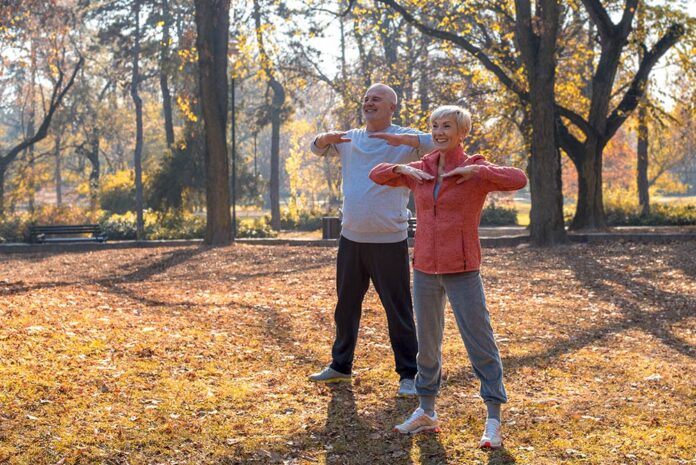During the winter, the impulse to hibernate instead of exercising is understandable but risky, especially for people suffering from the most severe symptoms of respiratory conditions. Olivia Quinn, Respiratory Clinical Nurse Specialist advises that staying active and healthy is the best medicine for people with COPD, asthma and similar conditions.
Cold and flu viruses, cold air/weather, damp, mould, fog, and increased air pollution are common triggers of respiratory illness during Winter, particularly for those suffering from acute conditions like COPD and asthma.
However, we can reduce the risks. Hand washing and hand gels are important defences. Also, the websites of the Asthma Society of Ireland and COPD Support Ireland are important information resources to help during the Winter. Even respiratory medication, including inhalers, may need adjustment at this time of year, and your healthcare professional can assist with this.
Overall, knowledge is power, and activity is essential. Knowing your baseline respiratory symptoms helps you understand what is normal or abnormal for you, which helps you and your healthcare professional to manage when there are flare ups or infections.
Most adults in Ireland spend at least five hours a day in sedentary activity (Healthy Ireland Survey, 2019), and limiting this is key for all age groups. Screen Time is probably the most common sedentary activity, particularly for young children and adolescents.
Research confirms that a sedentary lifestyle is worse for your health than smoking. Studies have found that people who sit the most, compared to people who sit the least, have a greater risk of disease and death. According to the HSE’s national ‘Get Up Get Dressed’ campaign, we lose 1 to 5% of muscle mass for each day spent in hospital.
The HSE has developed exercise videos for adults living with chronic conditions. While it’s easy to feel like hibernating, small changes to the daily routine can make a big difference.
For those living with chronic lung conditions, some activities lead to breathlessness, which can be uncomfortable, frightening and panic-inducing. However, avoiding activity may cause a downward spiral — the less active we are, the more muscle strength we lose, and we become more breathless with activity, and so on. The only way to reverse this is by being active. Here are some useful tips.
Get the basics right: Consult your healthcare professional before starting any new exercise routine. Do not exercise if you feel unwell, and drink plenty of water throughout the day. A useful guide is that you should be able to talk, but not sing, while exercising. You should stop exercising if you become too breathless, and never push into pain,
Choose an activity you enjoy, like dancing; walking with a friend when weather permits; join a group class like COPD Support Ireland; or swimming at your local pool. Even if going out is not your preference, there are many online options, such as the weekly programmes run by the Irish Lung Fibrosis Association of Ireland (ILFA), or the HSE’s home exercise videos for adults with chronic conditions.
Be mindful of the air you breathe: When you’re out and about, observe the following –
• Avoid rush hour or busy streets with lots of traffic fumes.
• Keep a distance from road, or junctions where cars are idling.
• Seek out green spaces and public parks if possible.
• Check www.airquality.ie for daily air pollution updates
Get the right fuel: A balanced diet is crucial for staying healthy. The food pyramid is an excellent reference point. If you get a chest infection, your body burns calories faster while fighting the infection, so, consider taking in a few extra calories.
Get vaccinated: Get vaccinated against flu, COVID-19, and pneumonia. The flu vaccine is the best way to protect yourself against flu. It helps your immune system produce antibodies to fight infection, and can prevent you from becoming sick if you come in contact with the virus. The vaccine takes two weeks to work and should protect most people for the whole flu season.
It is possible to get the flu after vaccination, but you should have milder symptoms and a faster recovery.
The influenza vaccine is safe and well-tolerated; it cannot cause influenza illness because inactivated influenza vaccines do not contain live virus. It’s important to get the flu vaccine every year because the protective antibodies fade over time, and flu strains change each year.
A native of Ennis, Colin McGann has been editor of The Clare Champion since August 2020. Former editor of The Clare People, he is a journalism and communications graduate of Dublin Institute of Technology.


